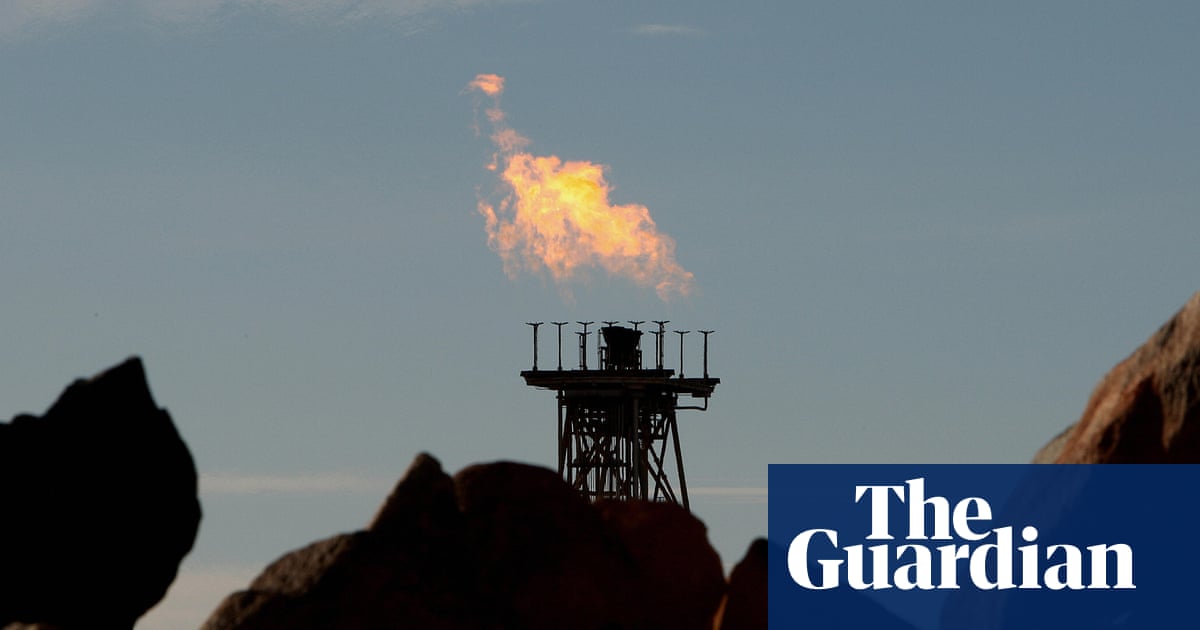Vanuatu’s climate minister has expressed disappointment over Australia’s decision to extend one of the world’s biggest liquefied natural gas projects and said it raises questions over its bid to co-host the Cop31 summit with Pacific nations.
The UN is expected to announce which country will host the major climate summit in the coming weeks, with Australia pushing for the event to be held in Adelaide as part of a “Pacific Cop”.
Speaking to the Guardian, Vanuatu’s minister for climate adaptation Ralph Regenvanu said Pacific leaders who have supported the co-hosting proposal now have “questions raised” followingAustralia’s decision to greenlight Woodside’s North West Shelf gas project until 2070.
Scientists and activists have said the life extension could be linked to up to 6bn tonnes of greenhouse gases being emitted in the decades ahead.
“This is not the leadership we want to see from Australia, if they are to be the host of Cop at the same time,” Regenvanu told the Guardian.
Australia’s foreign minister, Penny Wong, visited Vanuatu the week before her government approved the extension of theWoodsidegas plant. While there, she said Australia had been “a very emissions-intensive economy” and that “[we] have to turn that around”.
Regenvanu called this “double speak from Australia” and feared the same would take place during Cop.
“It’s bewildering for those of us in the Pacific to hear one message and then to see the actions completely contradict what the government is saying to us,” Regenvanu told the Guardian.
Despite his concerns around Australia’s support for the fossil fuel industry, Regenvanu said he continued to back the Australian government on the Cop31 bid.
“We continue to stand with Australia, but we feel very disappointed in what’s happened,” Regenvanu said.
“It raises, obviously, questions about whether Australia really is a partner of choice and whether it really is a friend of the Pacific.”
Cop, or the “Conference of parties on climate change”, includes meetings where governments negotiate how to respond to climate change while developing treaties like the Paris agreement to curtail rising global temperatures.
The UN climate talkshave been criticisedin the past for being held in major fossil fuel producing countries, with some experts calling for hosts to first prove their climate credentials.
Pacific leaders have supported Australia’s bid to host a Pacific Cop in 2026, saying the conference would help highlight the crisis Pacific nations face as a result of a warming climate and help them advocate for more ambitious global action. But regional leaders have also criticised Australia’s continued reliance on fossil fuels.
Palau’s president, Surangel Whipps Jr, has saidthe “merit and credibility” of Australia’s bid relies in part on its commitment to shift away from new gas and coal developments. Tuvalu’s minister for home affairs, climate change and environment, Maina Talia, said Australia’s decision to extend the North West Gas shelf project was “threatening our survival and violating the spirit of the Pacific-Australia climate partnership”.
